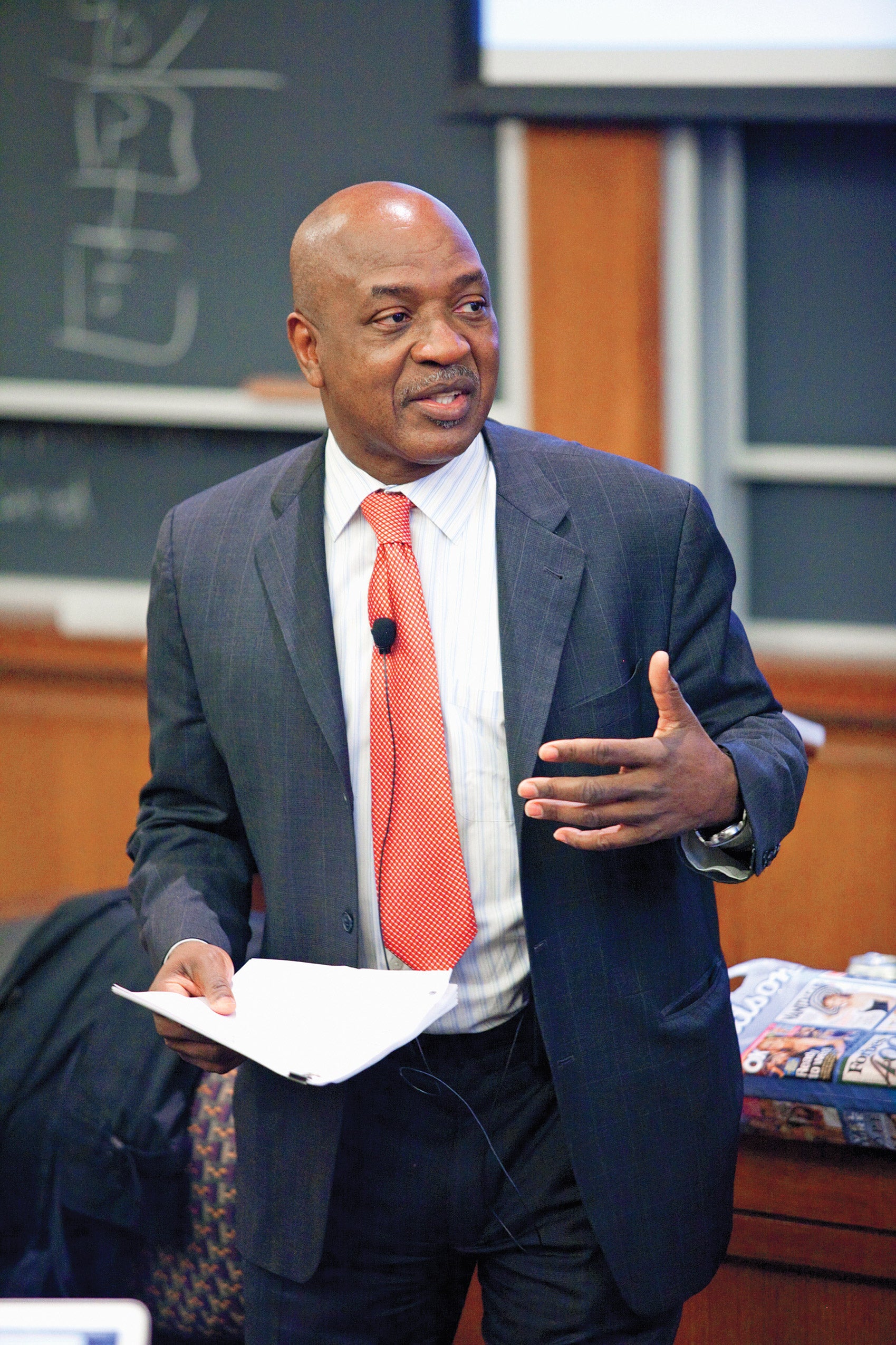HLS Professor Charles Ogletree ’78, executive director of the Charles Hamilton Houston Institute for Race & Justice at Harvard Law School, announced this summer that he has been diagnosed with Alzheimer’s disease. Ogletree, who is 64, said he will work to raise awareness of the disease and its disproportionate effect on African-Americans.
In a statement, he said: “Recently, I was diagnosed with early-stage Alzheimer’s. It was something I had not anticipated and, at first, I did not know how to respond to it.
“Should I allow myself to become despondent amid this challenge? No—today, just as I have fought and advocated for civil rights and justice for America’s communities of color over the course of decades, I will join the efforts of others raising awareness about the illness and fighting for a cure.”
In sharing the news with the HLS faculty, Dean Martha Minow said: “I know you join me in sending strength, support, and love to Tree, Pam, and their children. I am so glad that he will continue to speak, write and be a vital member of our community as long as he is able.”
Like many of Ogletree’s students, President Barack Obama ’91 calls him a mentor and an inspiration. In astatement to The Boston Globe, Obama said: “Professor Charles Ogletree has been a dear friend and mentor to Michelle and me since we met him as law students more than two decades ago. But we are just two of the many people he has helped, supported, taught, advised and encouraged throughout his life. We were saddened to hear of his recent diagnosis, but we were also so inspired by Charles’ courageous response. In sharing his story and putting a spotlight on this disease, he is continuing his lifelong efforts to help others. Michelle and I are honored to know Charles, and wish him, Pamela, and their children the very best.”
Said Ogletree: “I am grateful for the support of my family, friends, and colleagues, and especially grateful for my wife, Pamela, in joining me in the steps I have already taken and the journey that lies ahead—one that has led me to take a stand and ally myself with the fight for a cure for Alzheimer’s.
“While the causes of Alzheimer’s are currently not well-understood, it is my sincere hope that Alzheimer’s disease will continue to be part of a national conversation on health care.
“At this very moment, research is being carried out across the country and around the world to better understand and treat Alzheimer’s disease. The scientific community, including the community of medical researchers here at Harvard University, continues to make gains. These advances allow for better treatment of Alzheimer’s and have improved the lives of millions. However, these gains cannot come quickly enough.
“I’ve learned that Alzheimer’s is the sixth leading cause of death in the U.S. and more than 5 million people are living with the disease. That number is growing as our population ages and grays.
“Like many illnesses, Alzheimer’s has a greater impact on the black community. Studies show that African-Americans are almost twice as likely as whites to develop the disease.
“I have hope despite this. I’ve made up my mind to be thankful for what I have rather than focus on what I may lose. I’ve made up my mind not to complain about the illness, but to find purpose in it. The grace of God and my faith in God enable me to respond this way.
“I will not give up in the face of this challenge. I plan to remain a member of the Harvard Law School faculty and continue to speak and write for as long as I am able.”
